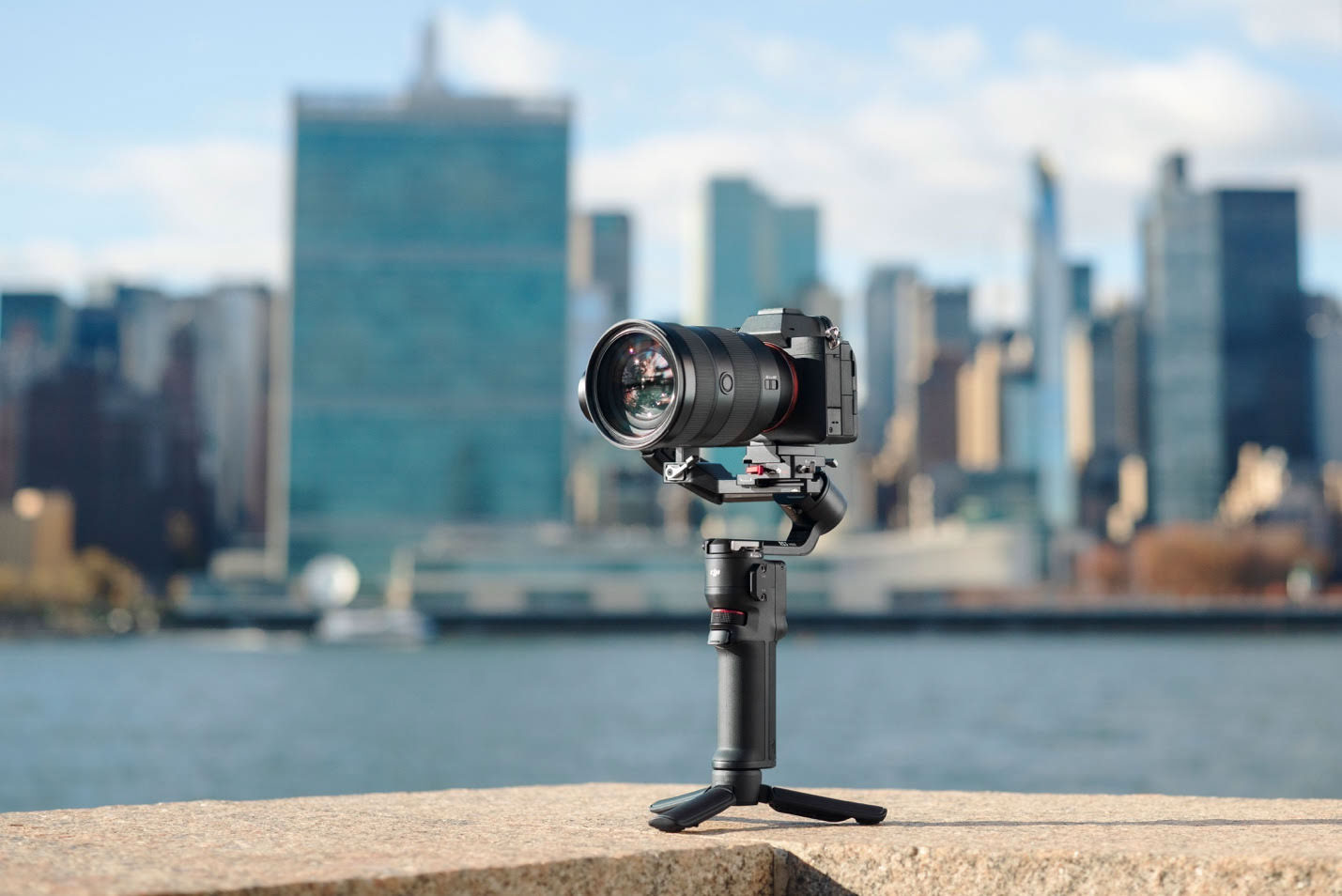
The professional video industry's #1 source for news, trends and product and tech information. Sign up below.
You are now subscribed
Your newsletter sign-up was successful
NANSHEN, China—DJI today introduced its RS 3 Mini, a lightweight, handheld travel stabilizer developed to support mainstream brands of mirrorless cameras and lenses.
The new miniature gimbal offers the stabilization available from other members of the RS 3 series, making it possible to capture professional content while traveling around landscapes and in urban locations, the company said.
Weighing less than 1.8 pounds, the gimbal can carry up to 4.4 pounds and features Bluetooth shutter control, a third-generation stabilization algorithm, native horizontal and vertical switching and a 1.4-inch color touchscreen.
“Since the introduction of DJI’s Ronin series for cinematography in professional environments, DJI has been working on bringing professional-grade technology to an increasing number of content creators,” said Paul Pan, senior product line manager at DJI.
“The DJI RS 3 Mini is testament to DJI’s core value of bringing innovative stabilization technology to everyone with a love of capturing their moments in a photo or on video," he continued. "Now, anyone with a mirrorless camera can experience the same industry-leading technology used on film sets and studios across the globe.”
With an all-in-one design, the RS 3 Mini supports many mainstream mirrorless cameras and lens combinations, including the Sony A7S3 + 24-70mm F2.8 GM lens, Canon EOS R5 + RF24-70mm F2.8 STM lens or Fuji X-H2S + XF 18-55 mm F2.8-4 lens. (A full list of supported cameras and lenses is available online.)
The gimbal’s powerful motor eliminates the need to repeat balancing to maintain stable footage capture when the zoom reaches its maximum focal length, it said.
The professional video industry's #1 source for news, trends and product and tech information. Sign up below.
To enable vertical shooting, the RS 3 Mini features a newly designed dual-layered quick-release plate. Attaching the quick-release plate to the vertical arm, makes vertical shooting possible without the need for additional accessories. Gimbal rotation angle is not limited, compared to traditional vertical mode. The gimbal also features an upper plate with a new curved placement guide that prevents the camera from rotating and loosening, the company said.
DJI’s third-generation stabilization algorithm enables the RS 3 Mini to achieve stable shots whether the user is running, shooting at a low angle or in flashlight mode.
When users are shooting around human subjects, the RS 3 Mini achieves smooth camera movements. Users don't need to pay too much attention to footwork and pace, as the RS 3 Mini can follow people steadily and switch between high and low angles for a more diverse range of shots. The unit makes it possible to capture dynamic, 360-degree-rotation imaging, it said.
The Wireless Bluetooth Shutter function supports linking with the majority of today’s mainstream mirrorless cameras. After the initially linking, the camera is automatically ready for use when turned on. Users can directly control the video recording and photo capture functions via the record button on the gimbal, enabling them to concentrate on shooting straightaway, it said.
When using a Sony camera with a supported digital lens, users can directly control optical or digital zoom via the front dial, eliminating the need for a camera control cable, it said.
The DJI RS 3 Mini is available now for $369 from authorized retailers and at the DJI online store.
More information is available online.
Phil Kurz is a contributing editor to TV Tech. He has written about TV and video technology for more than 30 years and served as editor of three leading industry magazines. He earned a Bachelor of Journalism and a Master’s Degree in Journalism from the University of Missouri-Columbia School of Journalism.

